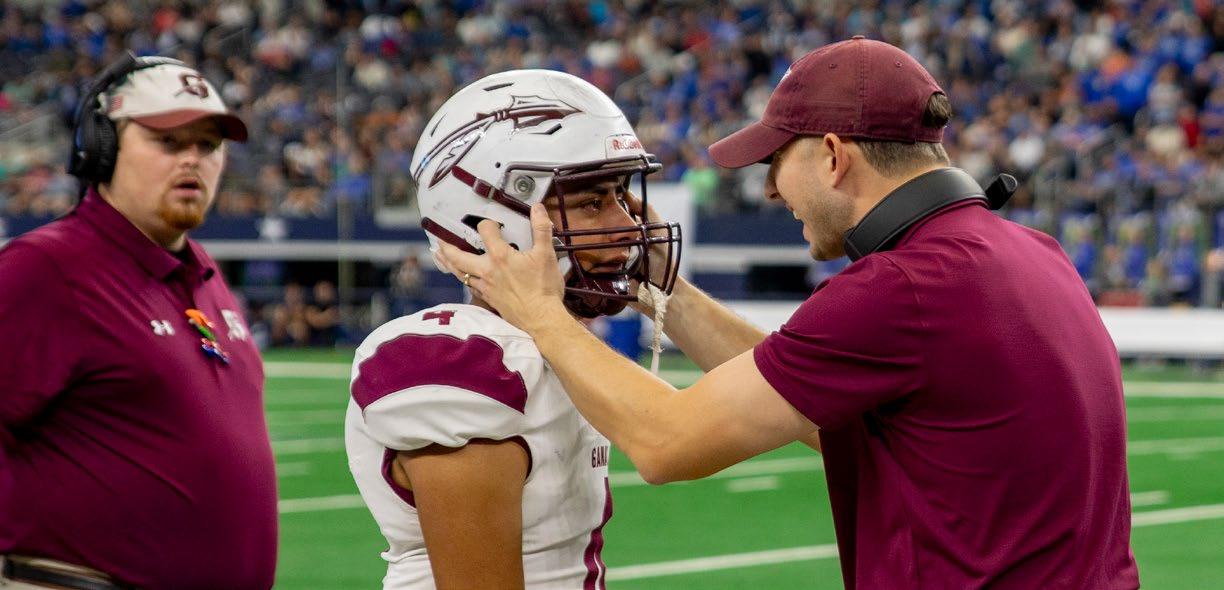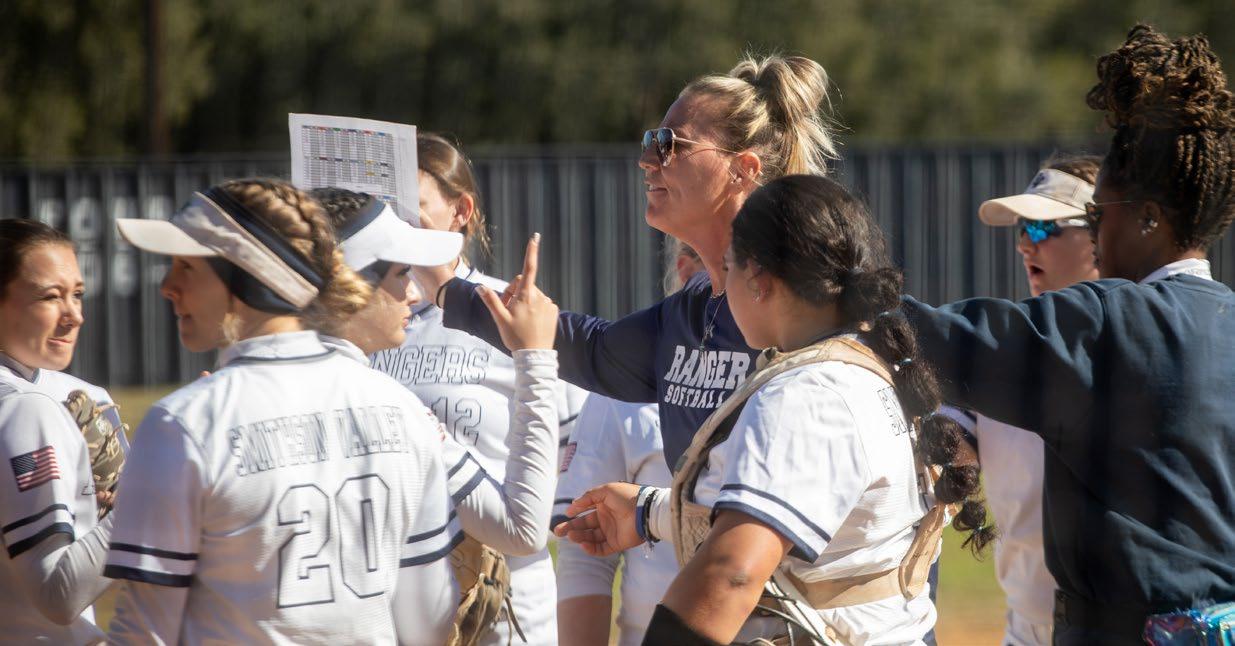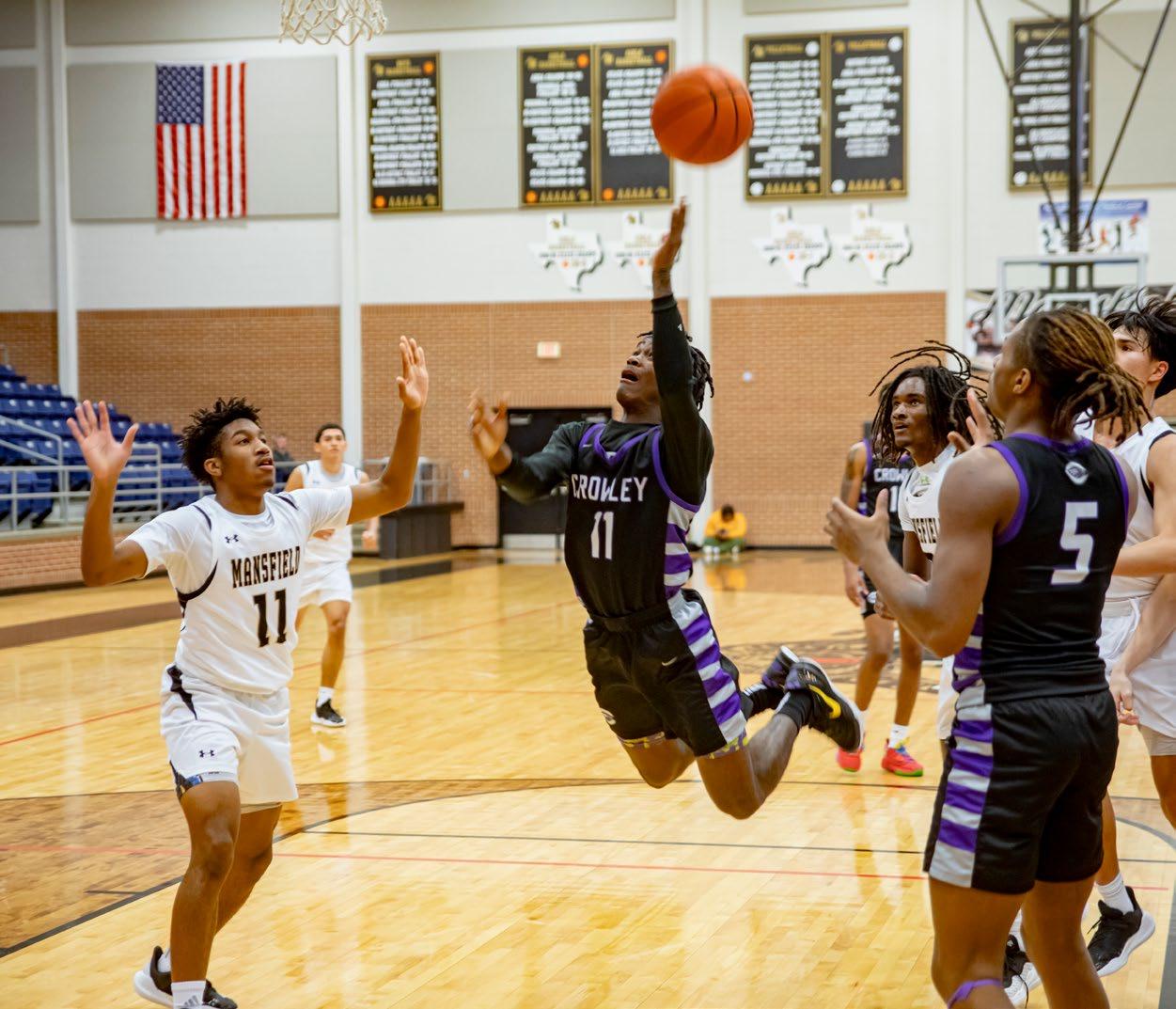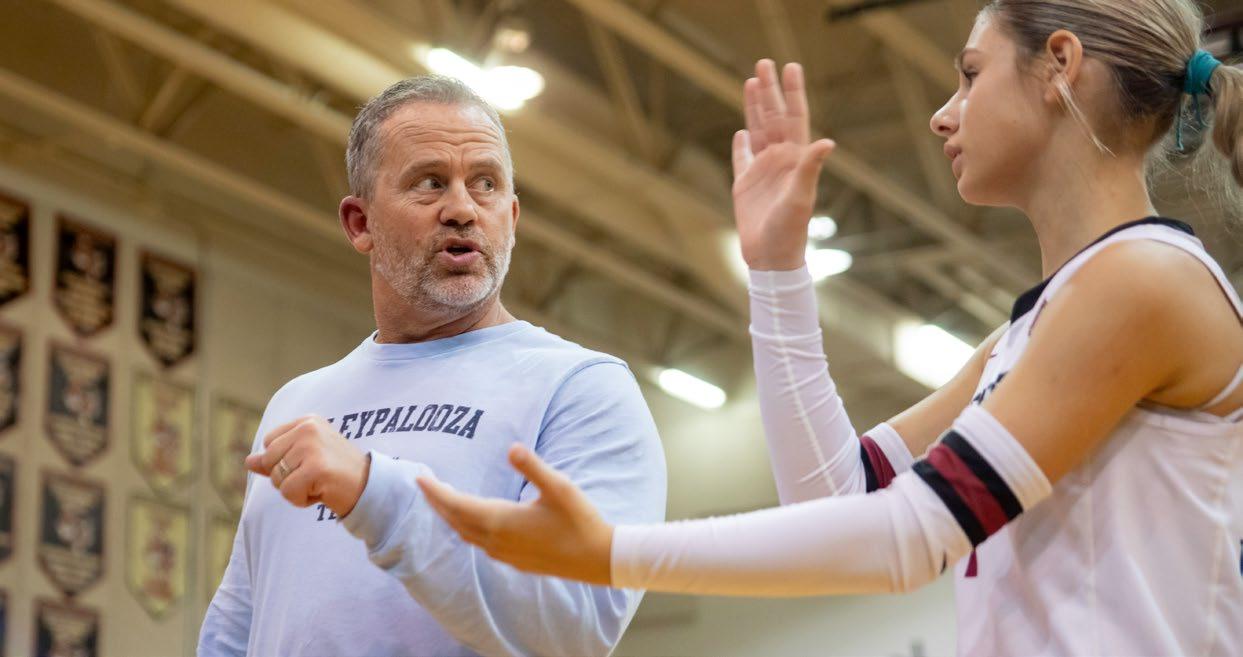
9 minute read
CHANGING THE CULTURE: HOW TO TRANSFORM YOUR HIGH SCHOOL ATHLETIC
BY JUSTIN MASON ASSISTANT COACH - LINDALE ISD
Changing the culture of a high school football program isn’t easy, nor is it about earning more wins or championships; it is about building a foundation that lasts, one that instills character, discipline, and pride. When a team embraces a new identity grounded in core values, it becomes more than a football program - it becomes a movement. Changing culture requires vision, consistency, and buy-in at every level. When these five core values are at the heart of that transformation, the results speak for themselves - not just in wins and losses but in how the program is viewed by others, and the kind of young men the program produces. Relentless effort, competitive excellence, uncommon commitment, unwavering accountability, and exceptional toughnessthese aren’t just football values, they’re life values. When these values become what your culture is rooted in, the impact lasts long after the final whistle.
Relentless Effort (4 to 6, A to B, +2): The Non-Negotiable Standard
This, above talent or intelligence, is the key to achieving great things in football and in life.
Culture starts with effort. Relentless effort means giving your best—always. It’s not about talent; it’s about work ethic. From offseason workouts to film study, every rep and every drill must be approached with the mindset that nothing less than full effort is acceptable.
4 to 6: Each football play lasts 4 to 6 seconds, make each second count.
A to B: How are you going to get from where you are to where you want to be?
+2: Don’t stop at the line, go past the line. Give a little more than what is required to be great.
When relentless effort becomes the standard, players stop looking for shortcuts and start finding ways to get better. That mindset becomes contagious, spreading beyond the field into the classroom and the community.

Competitive Excellence (The “practicers”): Win Every Rep
Be at your best when your best is required. Learn to compete at a very high level!
Changing culture means refusing to settle. Competitive excellence is about striving to win in everything—whether it’s a goal-line stand or a sprint at the end of practice. It’s not about winning on Fridays; it’s about winning every moment that leads to Friday: every rep at practice, every lift in the weight room, every quiz or test you take, and every job opportunity that you want.
Those that compete, not just when the lights come on but whenever they step on a field or court and take advantage of every rep and opportunity, have the chance to compete at the highest level and be the best “gamer” because they want to be the best “practicer”.
That level of competition drives internal motivation and builds a team that pushes each other to grow. When players compete with purpose, they learn to perform under pressure—and that changes everything.
Uncommon Commitment (All In, Every Day): Choosing the Harder Path
Uncommon results require uncommon commitment. Be set apart from what the world tells us is right or normal.
The best programs don’t follow the crowd—they lead it. Being uncommon is about making the hard choices the disciplined choices that others aren’t willing to make. It’s showing up early, staying late, watching extra film, and walking with integrity. In a culture that often celebrates shortcuts, an uncommon mindset separates the good from the great.
Choosing to go against the norm isn’t always easy, but to achieve the uncommon results that come with being a champion means making an uncommon commitment to being different than what others think/say you should be.
When a team fully commits to being uncommon, it sets a new standard not just for success, but for how success is achieved. True commitment isn’t seasonal—it’s daily. It means buying into the vision, trusting the process, and sacrificing for something greater than yourself. Whether it’s committing to your teammates, your coaches, or the mission of the program, that bond becomes the glue that holds the team together. Programs that foster deep commitment don’t fracture under adversity—they get stronger. Because when everyone’s all in, there's no room for excuses—only results.

Unwavering Accountability: Holding the Line
This is the glue that ties commitment to the result. Love your teammates enough to hold them accountable for their actions.
No great culture exists without accountability. When every player is held to a standard—and holds others to it as well—discipline becomes second nature. Unwavering accountability isn’t about punishment; it’s about pride. It’s knowing that your actions reflect the entire team, and that no one is above the mission. In a program built on accountability, finger-pointing disappears.
This comes back to “4 to 6, A to B, +2”. There is a saying among coaches that, “You are coaching it or allowing it to happen” and that is where accountability comes in. Are you coaching your kids and holding them accountable to your values and standards; or are you letting them coast? Urban Meyer, during his time at Ohio State, asked his team after practice, “Did you push yourself to be great today? If you didn’t do it, you lost today, and we don’t have many days to lose.” High school teams are guaranteed 11 weeks. Some teams can afford to lose a day, but many cannot. Why risk it to lose a day?
Even if you aren’t a titled “Head Coach”, know that you ARE the head coach of your position group. Take ownership in all you do and who all you coach. When a coach holds their players accountable to the values and standards they have put on their program, that is showing others that they are taking ownership of what is important. Taking ownership then becomes the norm, and leadership emerges from every locker. Loving someone enough to hold them accountable is what solidifies teams and gives them the chance to play beyond the time that is guaranteed.

Exceptional Toughness: Beyond Physical
Mental, physical, and emotional toughness. Tough People Win!
Toughness isn’t just physical—it’s mental and emotional. Exceptional toughness is what keeps you locked in when you’re tired, focused when you're frustrated, and united when things don’t go your way. It’s the ability to respond, not react. It’s grit, resilience, and a refusal to back down.
Mental toughness is the ability to stay strong, focused, and resilient in the face of stress, pressure, or adversity. It’s what helps people push through challenges, maintain motivation when things get hard, and stay disciplined even when they don’t feel like it.
Physical toughness is the ability of the body to endure pain, fatigue, discomfort, and physical stress without breaking down. It's not just about being strong or fit— it’s about how well your body can keep going when it's pushed to its limits.
Emotional toughness is the ability to manage your emotions, stay steady under emotional stress, and respond to difficult situations with clarity and strength. It’s about having control over your emotional reactions instead of letting them control you.
Culture changes when toughness becomes a trait, not a test. When a team is truly tough, they don’t just endure adversity—they embrace it as a chance to grow.
When looking to reshape or change your culture, there are a few things you can do to ensure that the change will be beneficial to your program, and these steps are vital to seeing the success you hope to achieve.

Steps to change your culture
1. Evaluate your current culture.
a. Change is often necessary, but not necessarily bad.
2. Lean on mentors and your staff.
a. Gather their thoughts and value their input. You may use it, and you may not.
3. Set your values and make them known.
a. Post them in multiple spots. The more they are seen, the more they are known.
4. Weed out what you need to weed out.
a. Some people will not buy in. That is fine, but you don’t need them. Your program will be better off.
5. Stick to your values, no matter what.
a. It won’t always be easy or seem to be working; but don’t give up. Keep going and see it pay off.
Changing a culture is never easy - but it is always possible with the right foundation. By embracing relentless effort, striving for competitive excellence, demonstrating uncommon commitment, holding ourselves to unwavering accountability, and showing exceptional toughness in the face of adversity, we create more than just a new standard - we ignite a movement. When Chris Cochran became the Head Football Coach at Lindale High School in 2017, he started with changing the culture. While he has compiled a record of 59-39 in his 8 seasons, and has taken the Eagles to the playoffs in 7 consecutive seasons, playing in the school’s first State Championship game in 2020, he will tell you that his biggest accomplishments are the young men that helped embody our core values. These core values do not end after the final whistle of the season, as many of our former players still emulate and contribute their successes in life to our core values. Changing a culture is never easy - but if necessary, lean into it and build a staff that will help embody it and practice it as a way of life and teaching. Culture really does shape a program. Core values shape that culture. Relentless effort, competitive excellence, uncommon commitment, unwavering accountability, and exceptional toughness - these five core values aren't just principles to live by; they’re the heartbeat of a culture built to last. When consistently applied, they don’t just change the way we operate - they transform who we are.

Justin Mason currently oversees Athletic Operations at Lindale High School and has been employed at Lindale ISD for 13 years. Entering his 14th year with the Eagles, Coach Mason coached on both sides of the ball before moving into a support-staff position in 2017. A member of both THSCA and THSADA, Coach Mason recently graduated from Texas A&M University with a Master’s degree in Sport Management. Justin and his wife, Meagan - who teaches Math at Tyler ISD and is a member of the THSCWA, live in Lindale and enjoy spending their summertime traveling and spending time with family.





